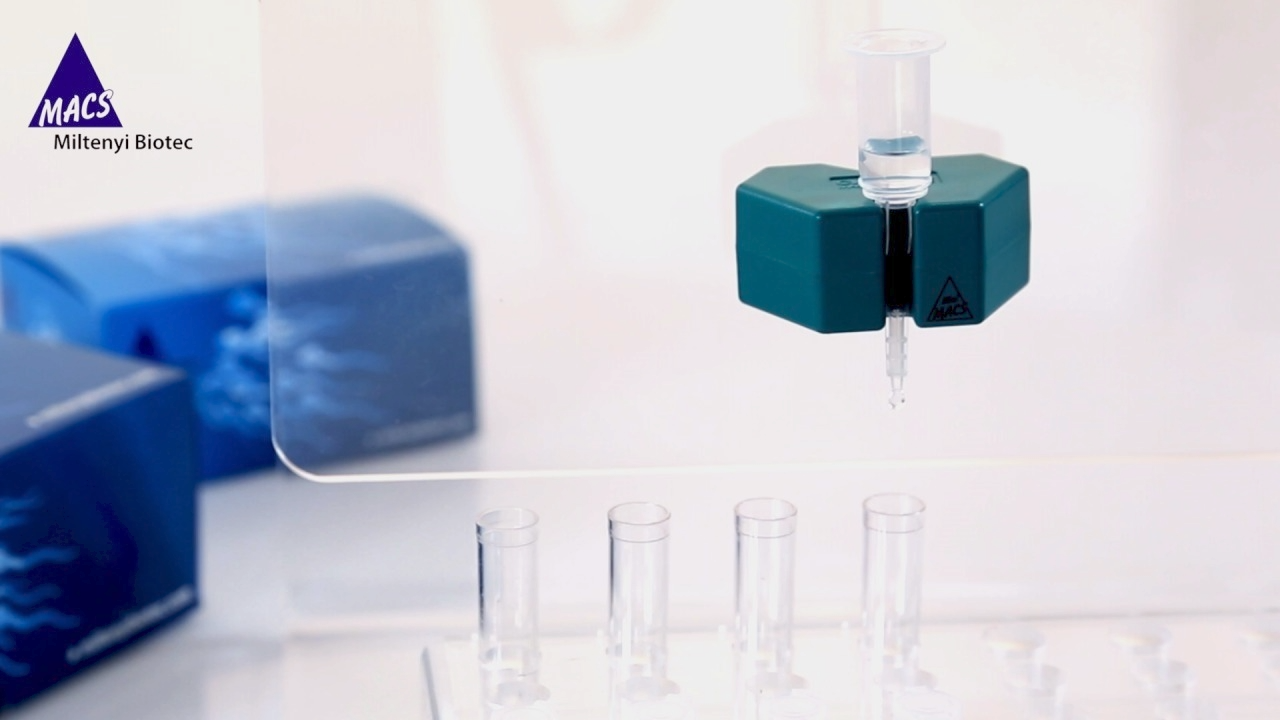Magnetic Activated Cell Sorting (MACS) - Sperm Selection technique for IVF Clinics
Magnetic Activated Cell Sorting (MACS) - Sperm Selection technique for IVF Clinics
Out of stock
Couldn't load pickup availability
- Standard Shipping 3-4 Days (ROI & NI only)
Magnetic Activated Cell Sorting (MACS) represents a pivotal sperm selection technique within Assisted Reproductive Technology (ART), designed to significantly enhance spermatozoa preparations by selectively removing apoptotic cells. This advanced method leverages the affinity of Annexin V to externalised phosphatidylserine (EPS), a key apoptotic marker on the plasma membrane of compromised sperm. By magnetically labelling these apoptotic cells with the MACS ART Annexin V Reagent, they are precisely retained within a magnetic column, allowing only viable, high-quality spermatozoa to be collected in the flow-through for subsequent use in ART procedures. This targeted apoptotic sperm depletion leads to superior sperm quality, evidenced by improvements across crucial parameters including morphology, motility, DNA fragmentation integrity, mitochondrial membrane potential, and cryosurvival rates. The system is noted for its ease of integration, speed, and proven non-embryotoxicity in Mouse Embryo Assays (MEA), ensuring procedural flexibility and safety.
A recently published paper explores Magnetic-Activated Cell Sorting (MACS) as a sperm selection technique to enhance reproductive outcomes in assisted reproduction techniques (ART), particularly for patients with high levels of sperm DNA fragmentation (SDF). The study compares MACS with conventional sperm selection methods, specifically density-gradient centrifugation (DGC), by analysing 724 ART cycles. The authors demonstrate that MACS significantly improves pregnancy and live-birth rates, while also reducing miscarriage rates in certain ART procedures like autologous and oocyte-donation ICSI cycles, suggesting its effectiveness in removing damaged sperm. The research aims to establish MACS as a valuable tool for improving the success of fertility treatments by selecting healthier sperm.
Share


